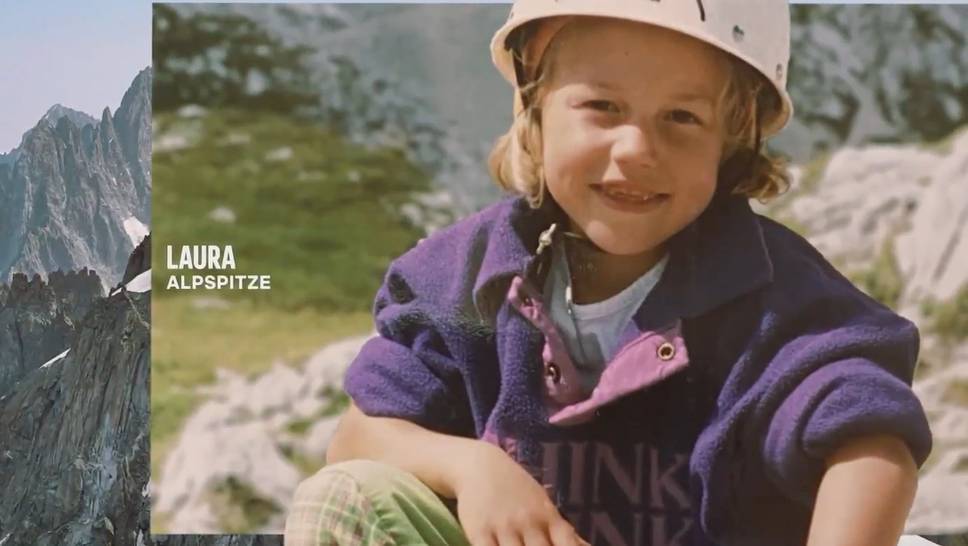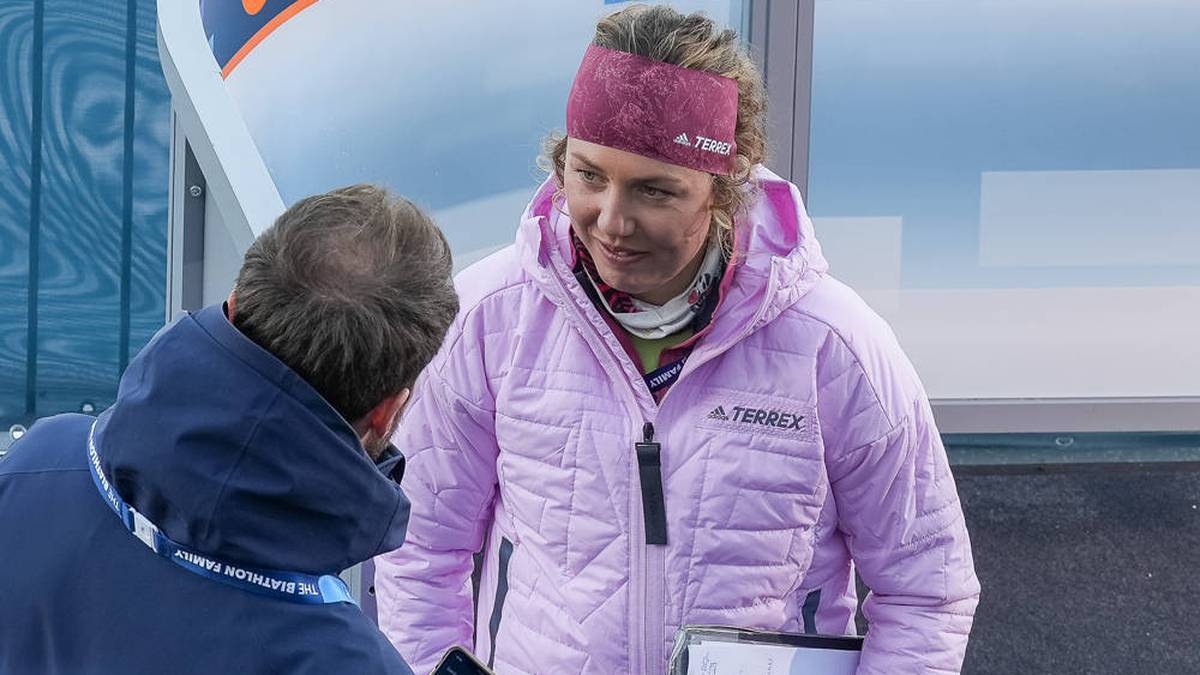
More than three months after her death, biathlete Laura Dahlmeier speaks once again in a book and gives deep insights.
It has been a good three months since Laura Dahlmeier died in a mountaineering accident in Pakistan. Now, the exceptional athlete has her say once again – in the book “Bock auf Biathlon” by journalist Taufig Kahlil, which will be published on November 5th.
In it, the long-time top athlete talks in detail about her sporting career as a biathlete. “There are athletes who prefer to focus everything on the one decisive moment. As a result, they sometimes have a hard time getting into the season or have a slump in between,” Dahlmeier is quoted by t-online.de in advance.

Laura Dahlmeier at work as a TV expert
“I was an athlete who was generally able to deliver a good performance throughout the season and was able to preserve it even after the highlight. It was important to me to keep my form consistent until the end. This is especially important if you want to win the overall World Cup.”
Biathlon career end not planned
The focus of the Dahlmeier chapter is on the 2016/17 season, in which the biathlete won five gold medals at the World Championships in Hochfilzen.
“I was only 23 and by no means at a point where I already suspected that I would quit in two years. I knew that I wouldn’t do biathlon forever, but I had no plan at all,” she recalled.
“My focus was to look from year to year, to take part in the 2018 Olympic Games in Pyeongchang and to let everything else come to me. But this year I hadn’t dealt with it and was completely free.”
Dahlmeier could not enjoy gold
The problem: Although Dahlmeier was free, she couldn’t really enjoy some of her triumphs. For example, she collapsed after winning gold in the individual event.
“Unfortunately, I couldn’t really enjoy it at first because I was really knocked out. I had given not 100, but 102 or 103 percent in the race and was so empty that I could hardly stand on my own feet.”
And further: “The effort doesn’t stop when you cross the finish line, it just shifts from the track to the area behind it: ceremony, press conference, interviews. Tuck, tuck, tuck, tuck, tuck, tuck. I was so empty that I had to be supported on the way back to the accommodation.”
Collapse after the relay race
But that wasn’t the end of it. Only a little later, the relay race was on the program – and full commitment was required again.
“So I had to get everything out of myself again in terms of running because I had screwed up at the shooting range. I didn’t want to be the one who screwed up the relay, so I ran for my life and in the end saved myself with a six-second lead. I don’t really remember what happened after that,” Dahlmeier couldn’t remember.
“I collapsed properly. When the girls from my team came to celebrate with me, I fell flat on my face in the snow and was gone. What was with this race, I didn’t care at the time. I thought: “I have to make sure I survive this now.”
Dahlmeier could rely on her body
Although the double Olympic champion got back on her feet, she didn’t have to attend the press conference afterwards. Instead, team doctor Klaus Marquardt did everything to stabilize her circulation.
The fact that Dahlmeier actually started in the final mass start after all the torments, and won, proves her special strength – and the trust in her body. The trainers and especially the team doctor didn’t actually want to let her start.
But the biathlete prevailed: “I go mountaineering, I go climbing. I know my body like no other. I can rely on my body, and I know that when I say it fits, it fits. Otherwise I could never go mountaineering. There, simple mistakes have completely different consequences,” she told those in charge.
“I feel really good and I promise you that it will work again and you can trust me 100 percent. I bear my own risk. Let me start. That works.”
“I’ll go again, and I’ll go alone”
In addition to anecdotes from her biathlon career, Dahlmeier also talks about mountaineering. “In the fall of 2024, during a Himalayan expedition, I climbed the 6,814 meter high Ama Dablam twice within three days and, without intending to, set a world record,” said the athlete.
“Because after the first summit ascent as part of a television documentary, we still had some time, I decided after two days of rest: I’ll go again, and I’ll go alone.”
In July 2025, she then embarked on her last expedition.